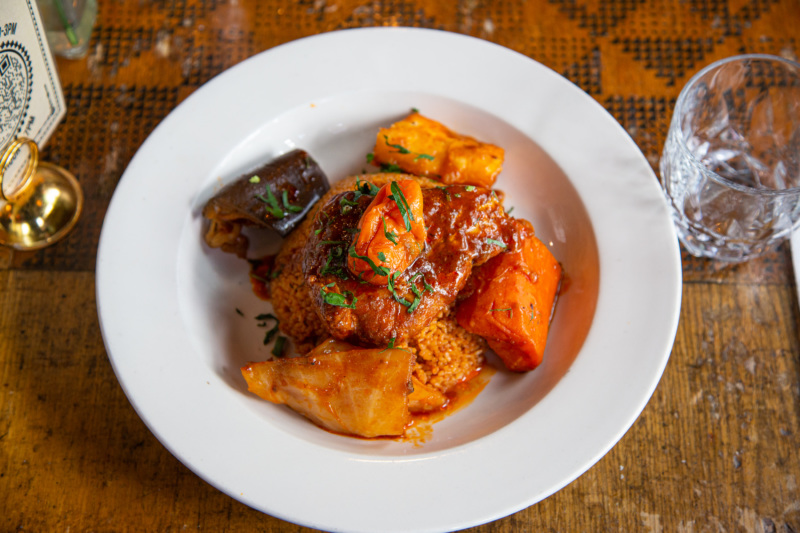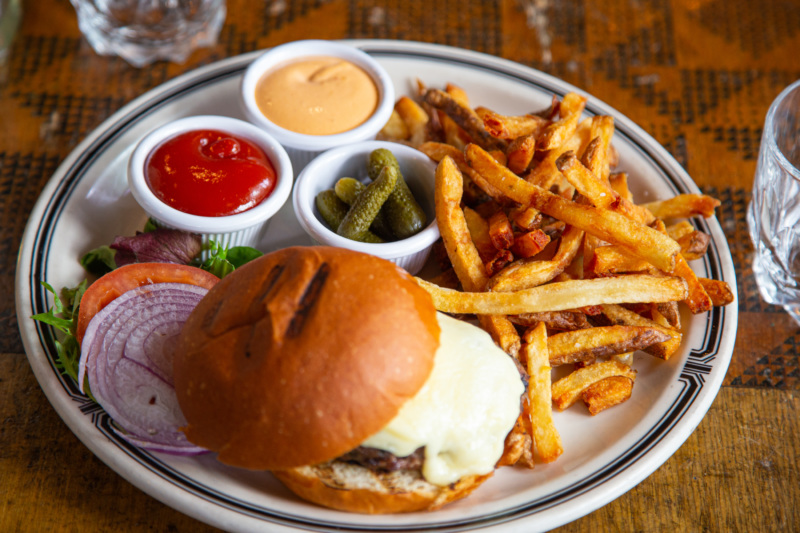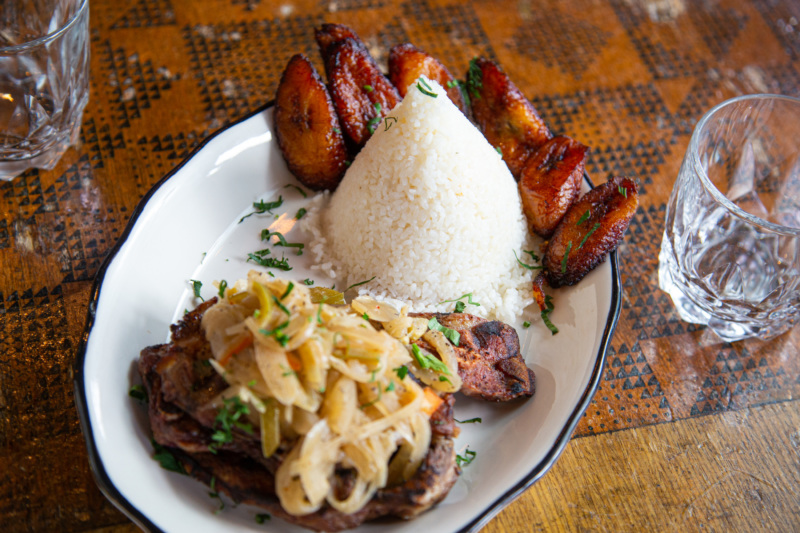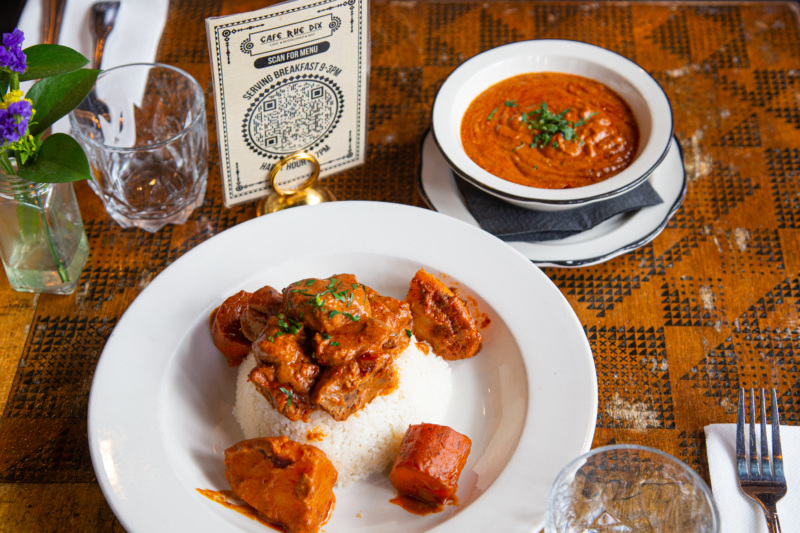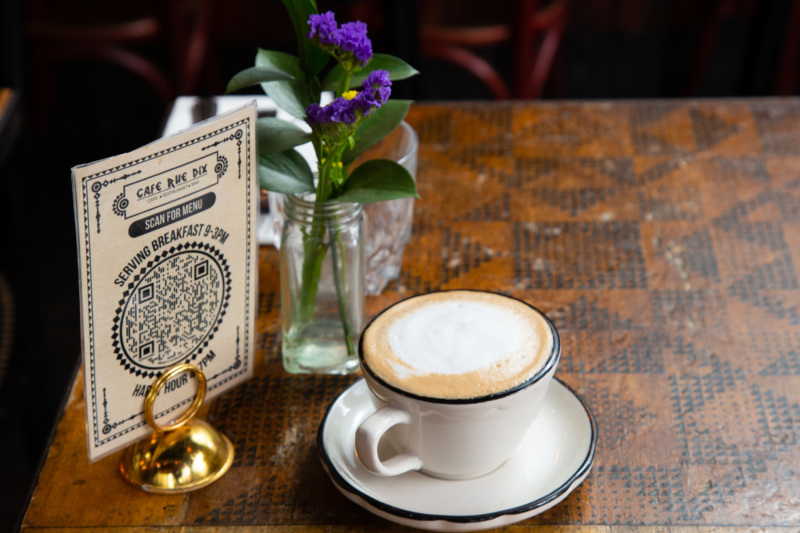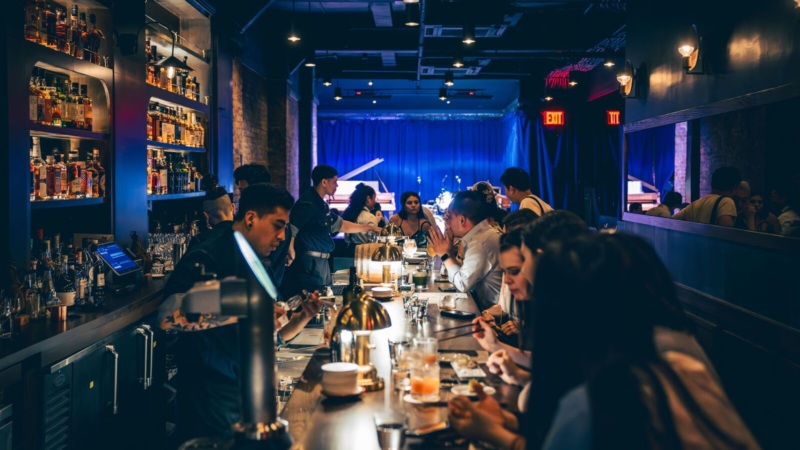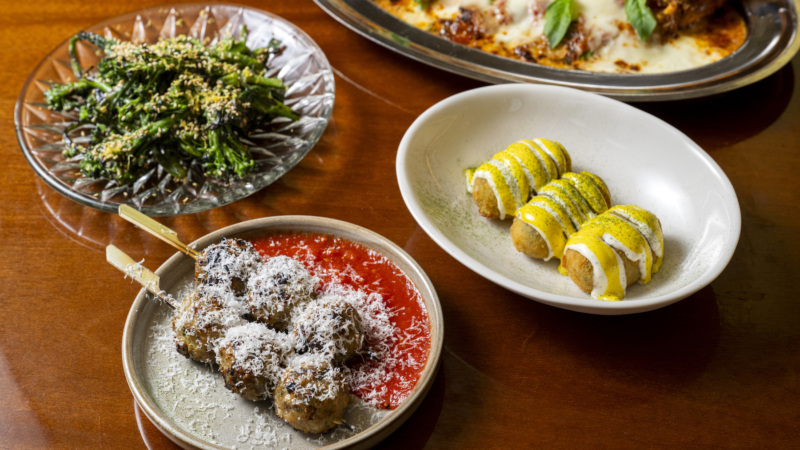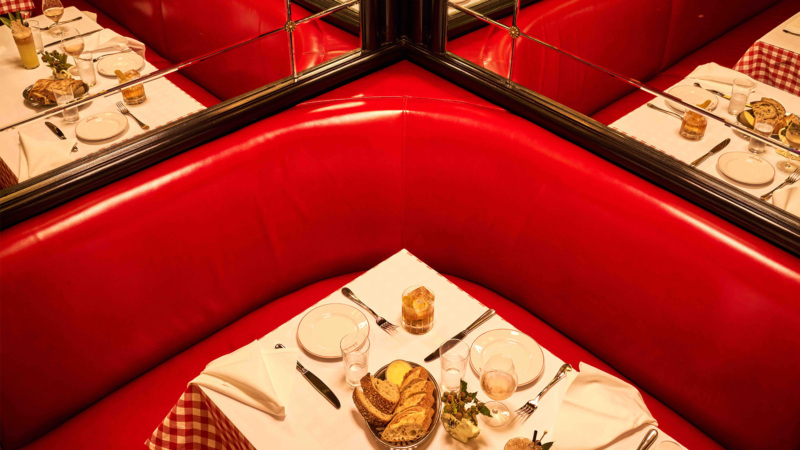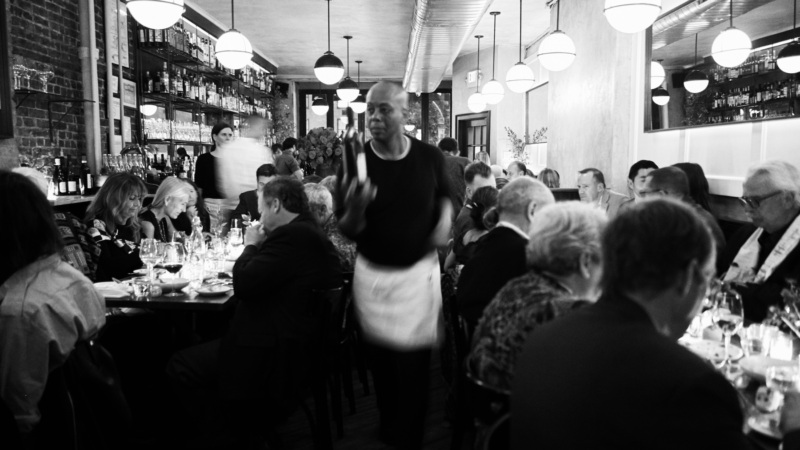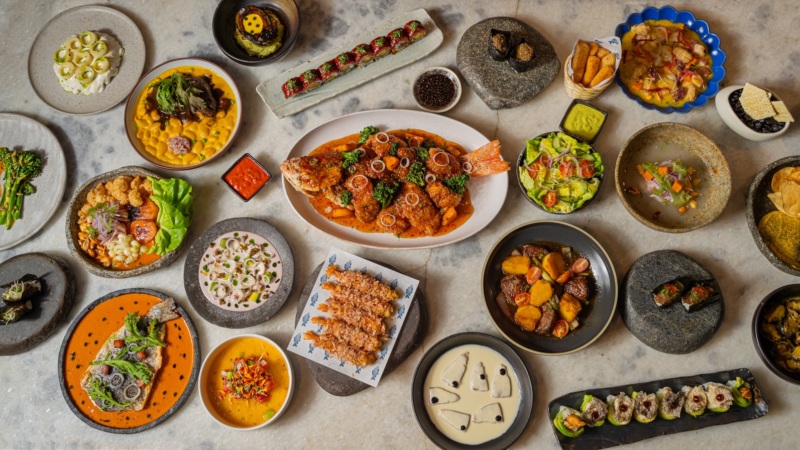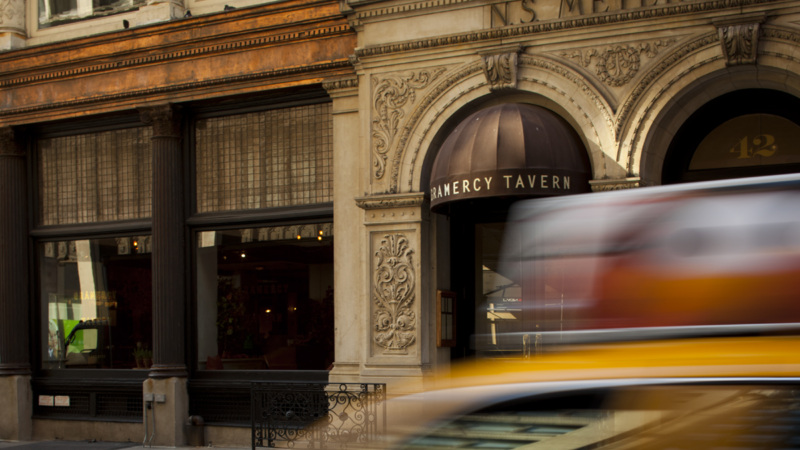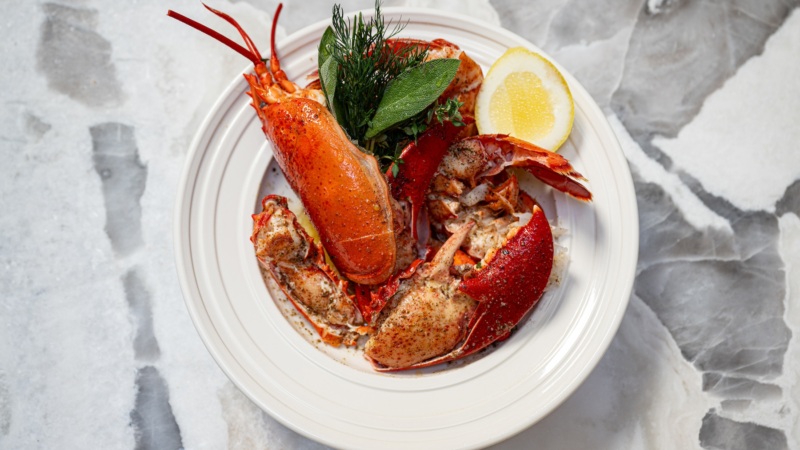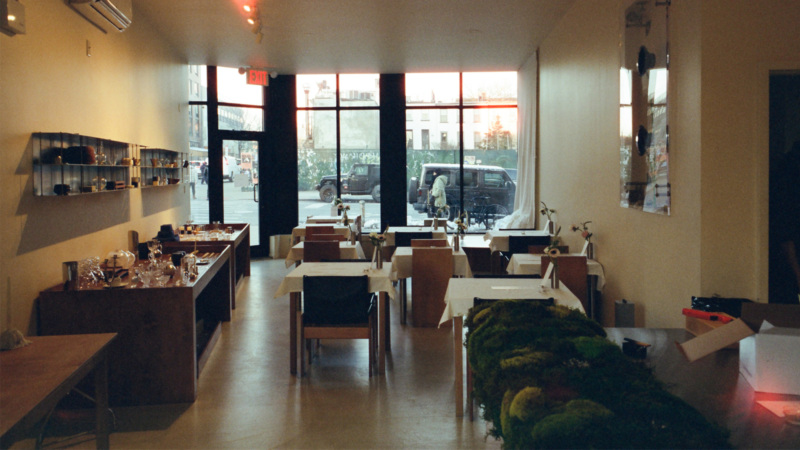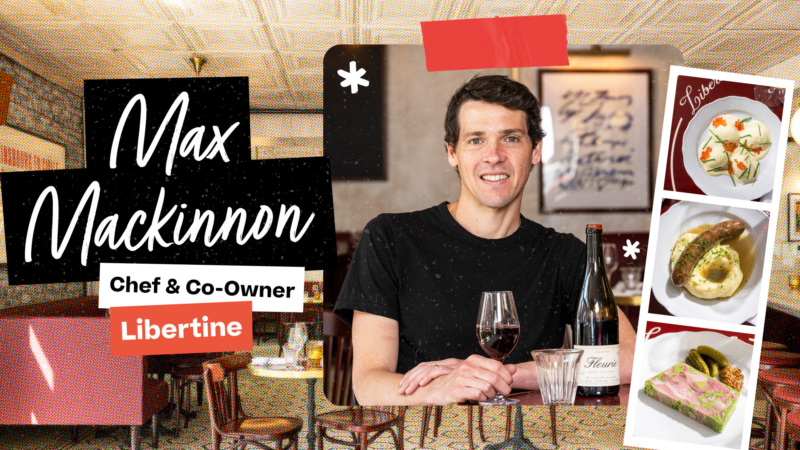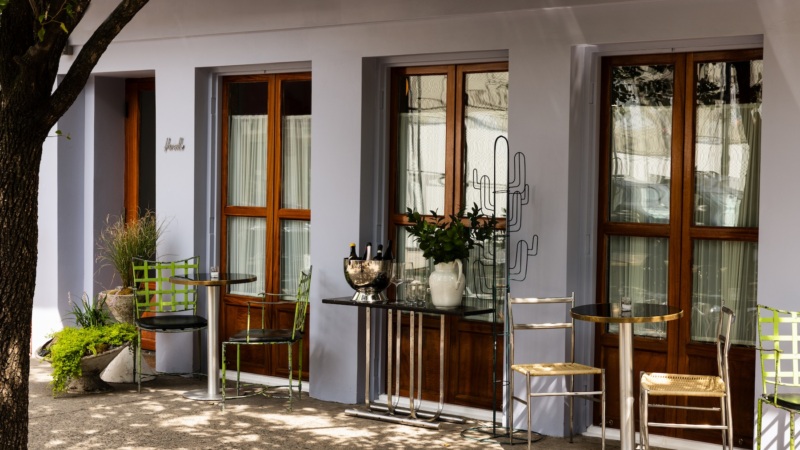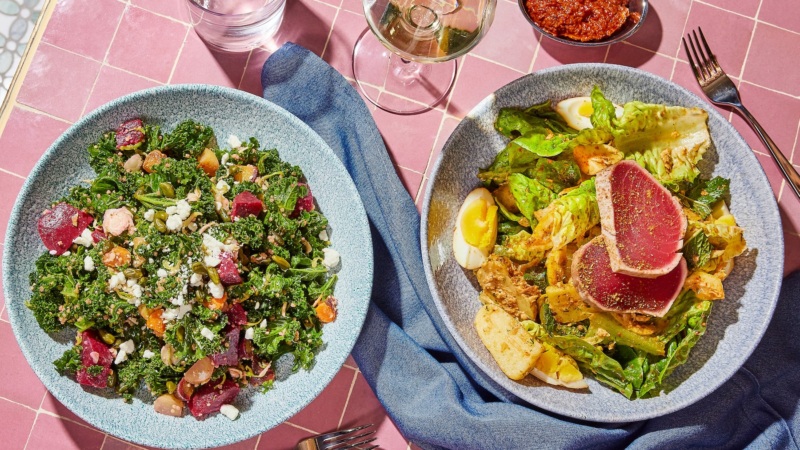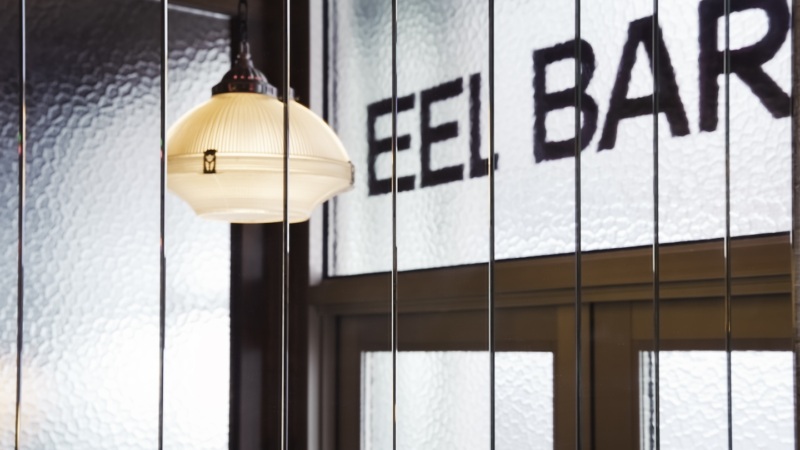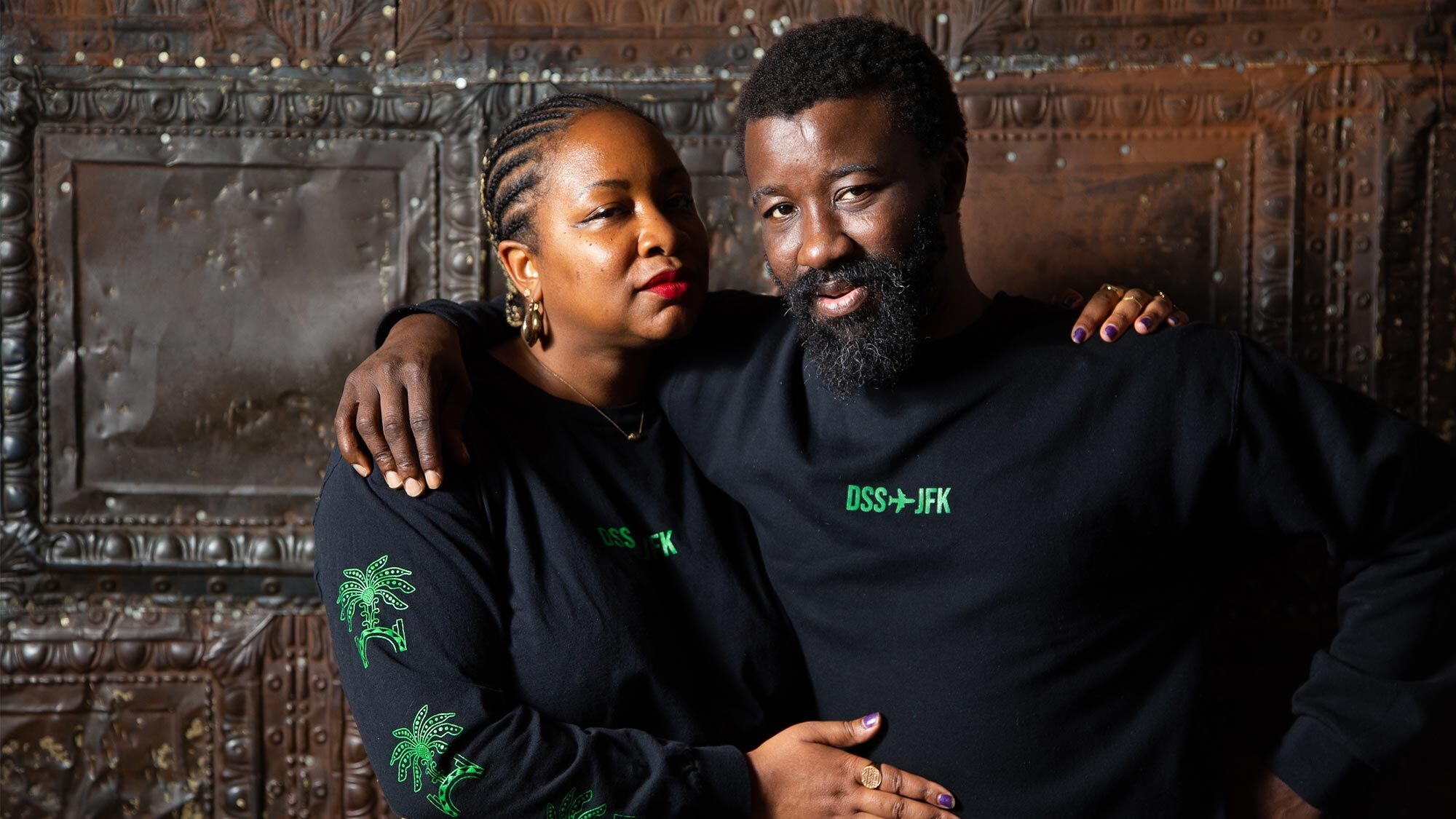
The Story of Crown Heights’ Beloved Cafe Rue Dix
Before you go to a restaurant, what do you want — or need — to know most? In our series, The Rundown, we’re sharing all the essentials about newly opened (as well as some of your favorite) restaurants.
In this edition, we visit Cafe Rue Dix, a Senegalese French restaurant located on the corner of Bedford Avenue and Park Place in Crown Heights, Brooklyn, from wife-and-husband team Nilea Alexander and Lamine Diagne. They tell us about how they met, how Cafe Rue Dix came to be, and reflect on the decade they’ve spent in the neighborhood.
Here’s everything you need to know about Cafe Rue Dix before you go.
1. It all started with a meet-cute … at a restaurant.
Alexander and Diagne met in 2010 at French Moroccan restaurant L’Orange Bleue in Soho (sadly, it closed in 2012), where he worked for more than 13 years. Alexander — who worked around the corner in fashion retail — went there for dinner one night with a friend who introduced her to Diagne. The two hit it off, became an item, and married a year later, in 2011.
“We moved to Crown Heights after we got married, and there weren’t as many places [for Senegalese cuisine] back then. Lamine would still take his scooter up to Little Senegal in Harlem to get his favorite Senegalese food,” Alexander recalls. Seeing an opportunity to open a spot in their neighborhood by combining their respective restaurant experiences and business acumen, they took the leap and found a corner space on Bedford Avenue, which eventually became Cafe Rue Dix in 2013.
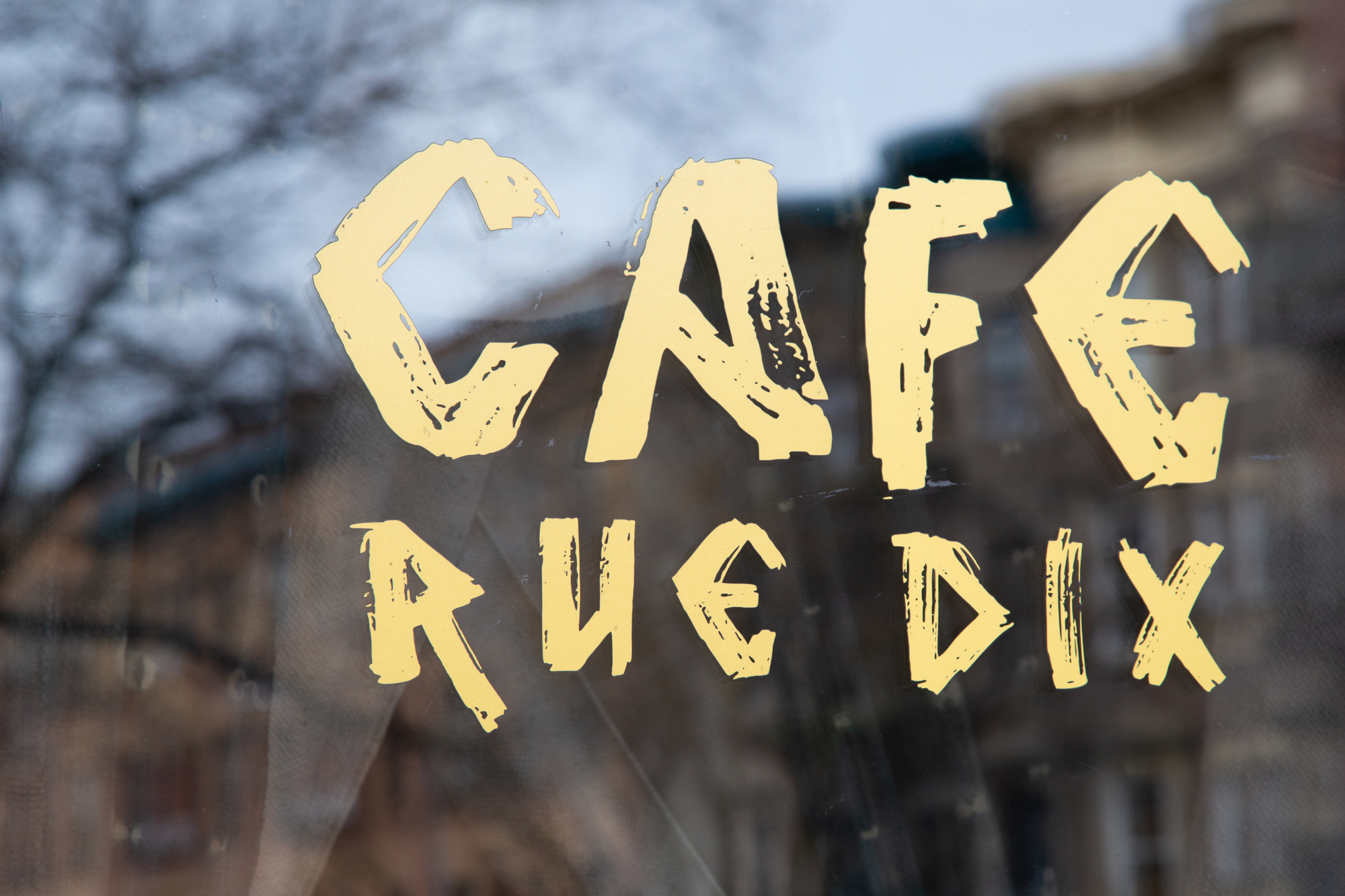
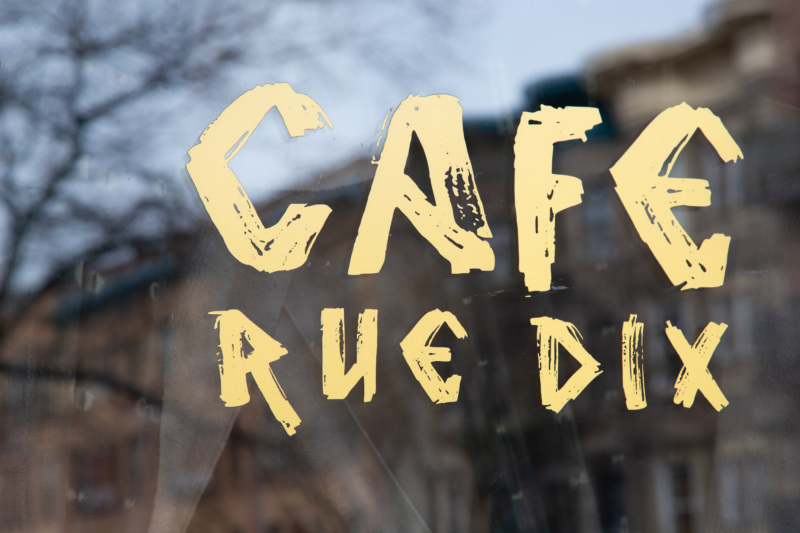
2. The restaurant is named for the street where Diagne grew up.
Diagne named the restaurant as a homage to his hometown of Dakar, Senegal. The house he grew up in was located on rue 10, in Pikine, Dakar, a major road. He explains how in Senegal, it’s customary to use landmark spots as a way of navigating around in lieu of a specific address. “People there will say, ‘Go to rue 10, then make a left turn.’ The fact that we found this place nested between Nostrand Avenue and Franklin Avenue reminds me of the purpose that my street served in Senegal, so it felt very fitting,” he adds.
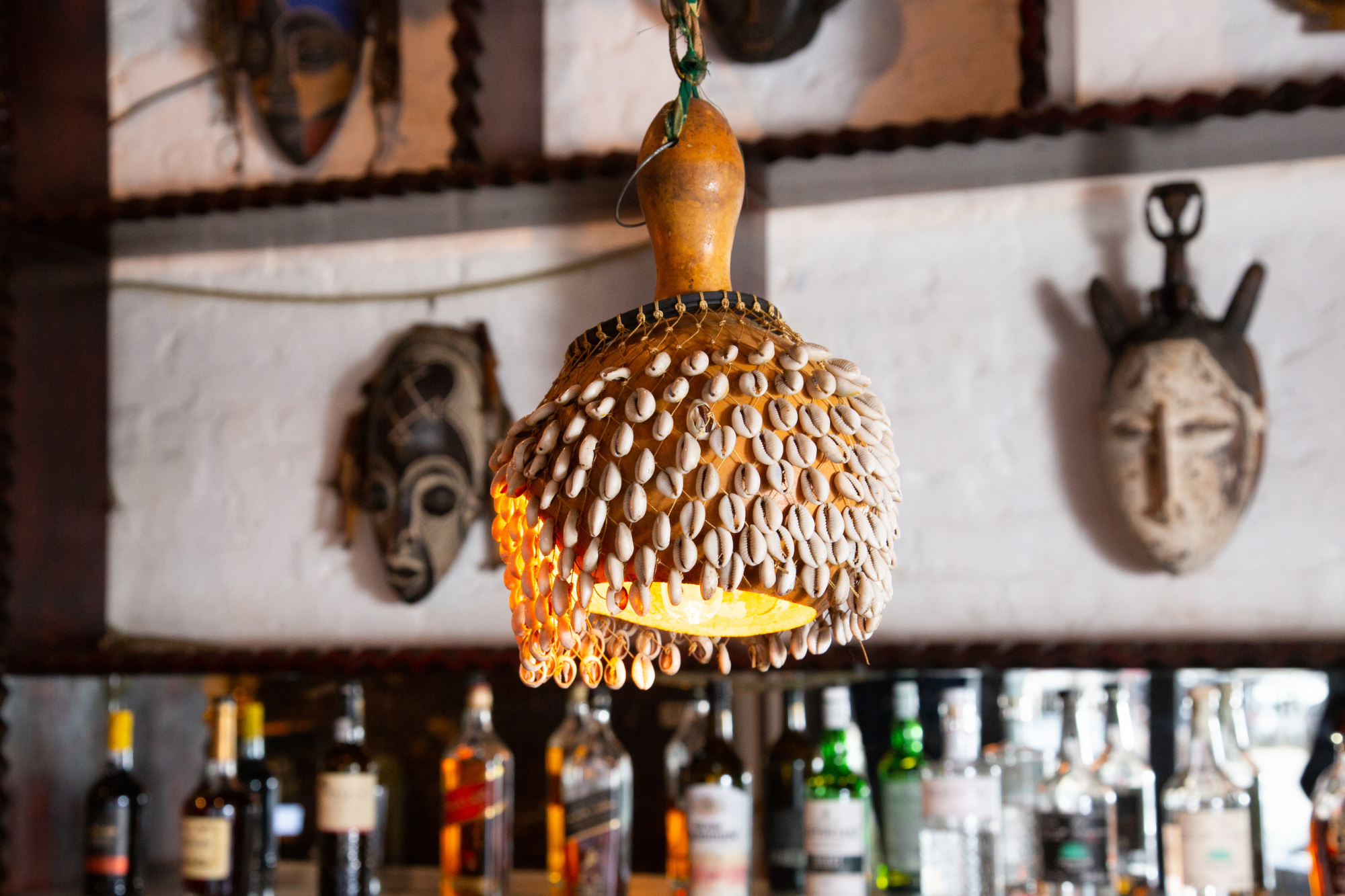
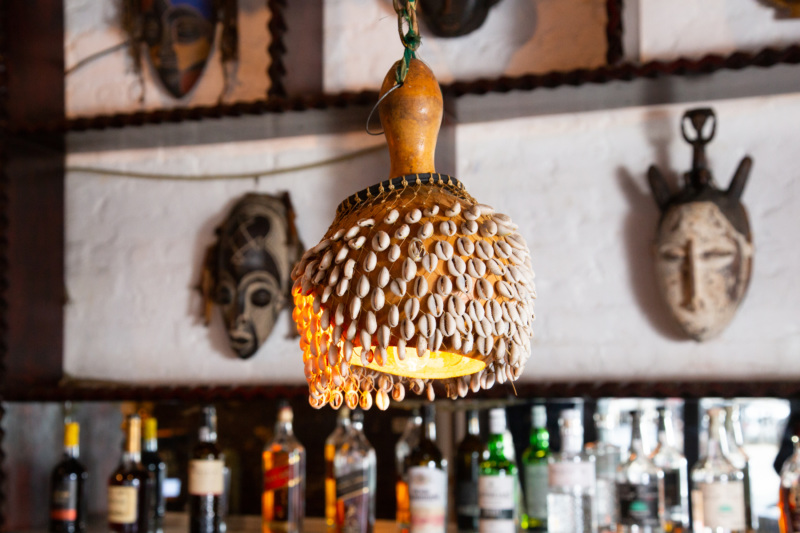
3. It’s Senegalese, but French, too.
“We wanted a Senegalese restaurant with a bistro feel. I wanted that little piece of Paris,” Alexander says. “You travel when you sit down,” Diagne chimes in.
Inside, you’ll find tables with wooden bistro chairs, snuggly set up next to one another, just like you would in France. Meanwhile, other touches are unmistakably Senegalese, from the light fixtures made from gourd drums and the geometric patterns adorning the bar to the masks hung along the walls. One of the walls near the entrance depicts a photograph from one of their travels to Gorée Island, located off the coast of Senegal. In the summertime, when the front window doors are open, the sidewalk turns into an outdoor café akin to what you’d find in Paris. All of these influences combine for an easygoing and welcoming atmosphere that’s unique to Cafe Rue Dix.
“This is still a working-class neighborhood,’ Alexander says. “It’s a small and intimate restaurant. At dinnertime when the tables are full and you have really good African music playing, the vibes are popping. People feel at home when they come here. They enjoy the coziness. Lamine has always been very adamant that this restaurant has to feel relatable and not stuffy.”
4. Here’s what you can expect on the menu.
While the restaurant is a unique blend of French and Senegalese influences, don’t expect to find a menu full of fusion food, per se. Instead, the menu boasts an extensive selection of traditional Senegalese dishes next to classic French fare. “In the beginning, people hadn’t heard of Senegalese food. They’d come to have a burger, then they’d see thiebou djeun (spelled “thiebou jen” on the restaurant’s menu) and try it too”, Alexander says.
Thiebou djeun (also spelled thieboudienne, meaning “rice and fish” in Wolof), is Senegal’s national dish and has become Cafe Rue Dix’s bestseller. The dish is a labor of love, taking anywhere from four to five hours to prepare, like most Senegalese dishes, prepared in one pot, jollof style. “Cooking is such a big event in Senegal. They start cooking in the afternoon,” Alexander explains. Cafe Rue Dix uses red snapper and an assortment of vegetables, such as carrots, yuca, eggplant, cauliflower, and even pumpkin for its thiebou djeun. Everything is first cooked one by one in a base of tomato and stock, then rice goes in last, soaking in the juices from the previous ingredients.
Other Senegalese dishes you’ll find on the menu include mafe, a spicy beef stew cooked in a creamy peanut butter sauce, or dibi, grilled lambchops served with onion confit, grilled sweet plantains, and attiéké, fermented cassava roots that are similar in texture to semolina.
For more traditional French fare, try their burger, a ground ribeye patty mixed with Senegalese spices served on a brioche bun, or their steak frites, complemented by a side of Roquefort sauce.
Alexander and Diagne advise diners don’t leave without ordering their famous beignets and ending their meals with either the cafe Touba, a traditional Senegalese coffee blended with spices that include djar, or Guinea pepper, or the Ataya tea. A staple of Senegalese tea culture, it’s a ceremonial gunpowder green tea steeped with fresh mint, served in shot-style glasses.
5. Shopping next door is a must.
A year-and-a half after the restaurant opened, the space next door became available, and Alexander and Diagne decided to expand by opening a store; after all, Alexander had a retail background, and used to sell vintage items at the Fort Greene Artisans Bazaar. Marché Rue Dix is a multi-concept store of sorts: there’s a pantry section with Cafe Rue Dix’s proprietary blends of spices, coffee and tea (like the Cafe Touba and the Ataya tea) as well as their housemade hot sauce. You can purchase the same T-shirts worn by the staff. You will also find all the things Alexander loves, from vintage clothes and accessories to beauty products and scented candles, as well as a Senegalese incense called thiouraye. Last year, Marché Rue Dix started selling high-end fashion pieces directly sourced from Senegal. And just in case you wanted to treat yourself even further, they also have a nail studio in the back of the store: “Our phrase is ‘Eat, shop, and get your nails done at Rue Dix,’” Alexander proudly exclaims.
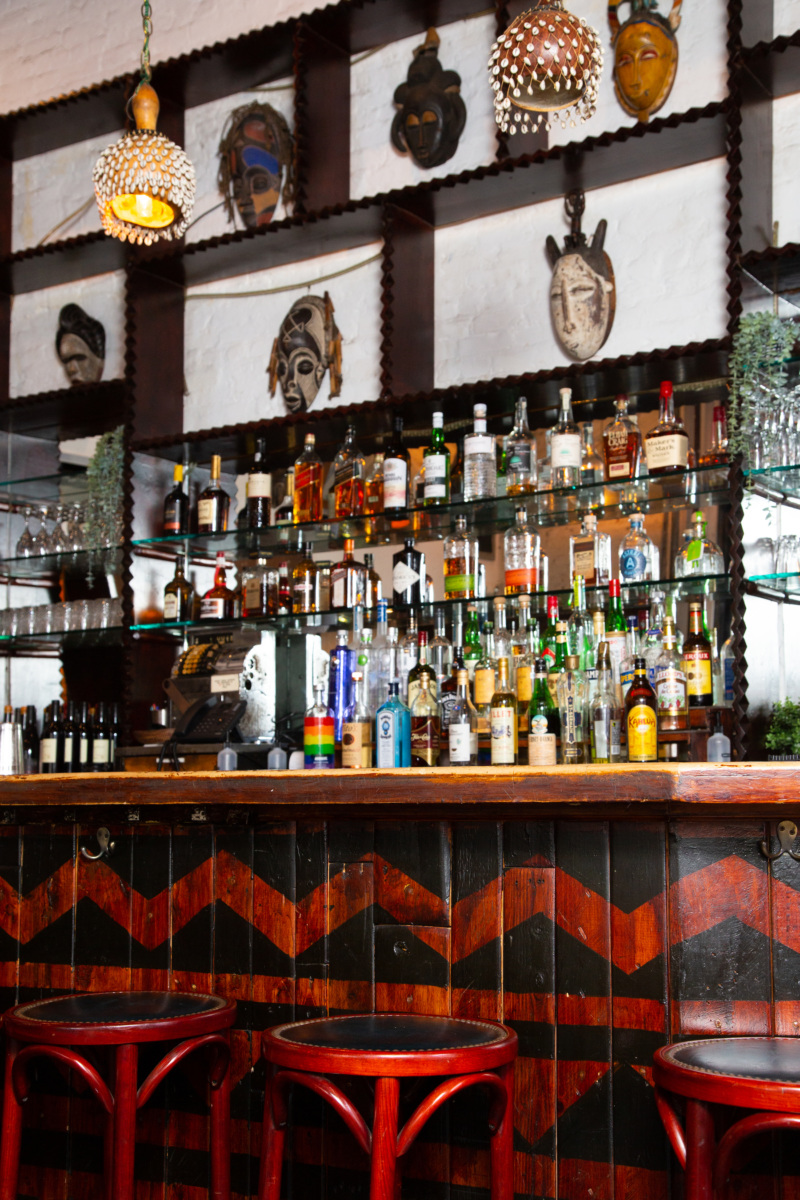

6. The restaurant turns 10 this year.
Not many restaurants in the city make it to 10 years, but Cafe Rue Dix will this summer. “I don’t think that people realize we’ve been here for 10 years,” says Alexander. “That’s a big deal. When we opened, there were no fat cat investors, we bootstrapped it ourselves. We were on our own, figuring it out. When restaurants make it that long, there is usually a group behind it. Now, with our store next door, people are realizing that it’s a brand. There is some longevity there.” Some of their customers have become close friends and collaborators, like neighbor and yoga instructor Jyll Hubbard, who hosts and DJs monthly “Meet Me at Rue Dix” happy hours at the restaurant.
Alexander’s West Indian family has lived in Crown Heights for decades, so it was important for her and Diagne to put down roots there and be part of the community from the beginning. Reflecting on how the neighborhood has evolved in the past decade, she says, “When it did change, we were already woven into the fabric of the neighborhood. You see people move in and people move out, businesses change. It’s important to grow and evolve while staying true to who you are.”
And things for the restaurant and shop are only getting better, too. “If you look at our menu, it’s almost the same as the one from day one,” Diagne adds. “The core is there. We’re like a kid getting stronger.”
Cafe Rue Dix is open from 9 a.m. to 10 p.m. Mondays through Thursdays, 9 a.m. to 11 p.m. Fridays and Saturdays, and 9 a.m. to 9 p.m. on Sundays. Marché Rue Dix is open from 9 a.m. to 9 p.m. Mondays through Saturdays and 9 a.m. to 8 p.m. on Sundays.
Coralie Kwok is a French-born writer and hospitality professional based in Brooklyn. She’s always on the quest for the best baguette.
Discover More
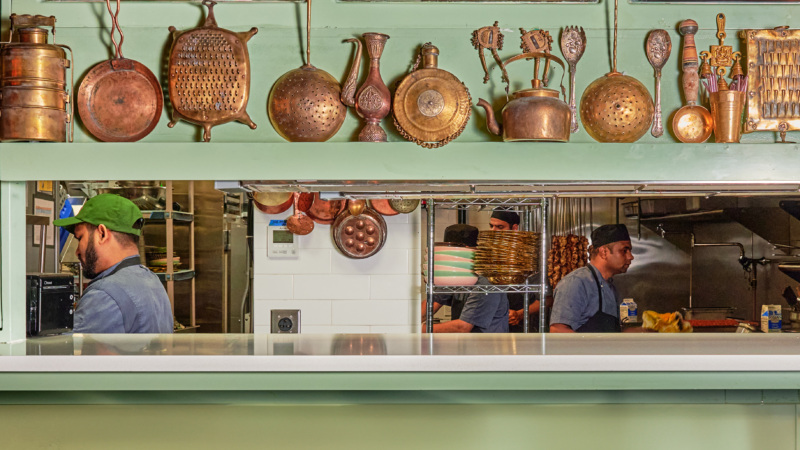
Stephen Satterfield's Corner Table


